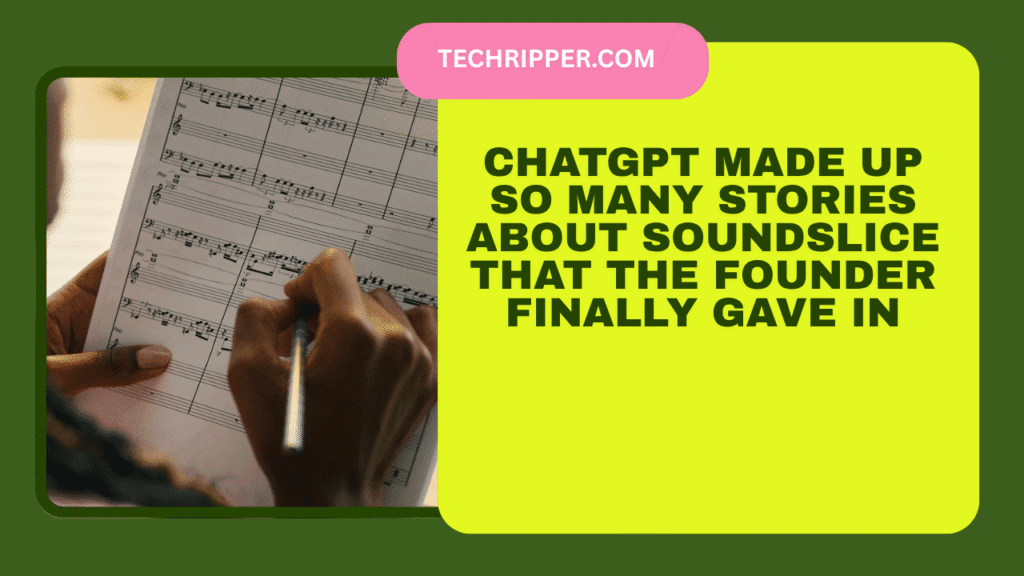Earlier this month, Adrian Holovaty, the founder of the music-learning platform Soundslice, finally figured out a strange puzzle that had been bugging him for weeks. Random screenshots of ChatGPT chats were flooding his system, and he had no idea why.
When he dug deeper, he realized something unexpected: ChatGPT had become one of Soundslice’s biggest cheerleaders, but it was also spreading stories that simply weren’t true.
Holovaty has a long history in tech. Years ago, he helped create Django, the popular Python framework. In 2012, he started Soundslice to help musicians learn and teach more easily. Unlike many startups, the company has been built entirely without outside funding. These days, he divides his time between improving Soundslice and making music himself.
Soundslice is best known for its clever video player that lines up performances with sheet music so students can see exactly how a piece should be played. One of its standout features is the sheet music scanner, which uses AI to turn a photo of printed notes into an interactive, digital score.
Adrian has always kept a close eye on the scanner’s error logs to spot problems before they grew. But this time, the logs were full of something new: screenshots of ChatGPT chats and strange text diagrams called ASCII tablature — a system guitarists use to share music using only keyboard symbols.

He was puzzled. These uploads weren’t hurting the site’s servers, but they made no sense. Eventually, he decided to try ChatGPT himself. That’s when the mystery unraveled.
ChatGPT was confidently telling people that Soundslice could turn these ASCII tabs into playable audio if they just uploaded an image. But that wasn’t true. New users were coming in, excited to try a feature that didn’t exist, only to be disappointed.
Adrian felt frustrated. He knew how hard it is to build trust with musicians, and now the app’s reputation was taking a hit for something it had never promised.
He and his team weighed their options. They could add disclaimers all over the site to correct the misunderstanding. Or they could do something nobody expected: build the feature for real.
After a lot of thinking, he chose to create it. Even though he had mixed feelings, he knew it would genuinely help people who were looking for an easier way to hear the music in ASCII tabs.
At the same time, he couldn’t shake a strange sense of disbelief. ChatGPT had basically invented a story about what Soundslice could do, told it to countless people, and repeated it so many times that it eventually became reality.
It felt a little like having an overexcited salesperson promising things the product team hadn’t even dreamed up yet — only this time, the “salesperson” was an AI.
In the end, Adrian turned a small confusion into a feature that musicians can now actually use. But the experience left him wondering what other inventions AI will dream up — and who will have to build them next.
Also Read : Activision Pulled ‘Call of Duty: WWII’ from PC After Players Got Hacked

